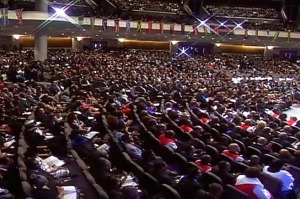Replacing Kevin McCarthy: 5 things to know about the race for House speaker

5. Vote might not require majority support of the House
The effort to elect a House speaker at the beginning of the 118th Congress was a long, drawn-out process that took 15 ballots and four days. McCarthy ended up becoming speaker with 216 votes on Jan. 7. While it ordinarily would have taken the votes of 218 of the 435 members for him to become speaker, the fact that several of his most persistent critics opted to vote “present” on the 15th ballot rather than voting for someone else lowered the number of votes required for him to become speaker.
As was the case in January, the 212 Democrats serving in the House will likely remain united behind Jeffries no matter how long the process to elect a new speaker takes. This means that whatever Republican emerges as the favorite to become the new Speaker will need at least 213 votes to win.
Assuming all members are present in the chamber when the votes to elect a speaker take place, it will take 217 votes out of 433 to elect a new speaker. That number will drop if one or more members of the House opt to vote “present” rather than supporting a particular candidate for speaker.
Ryan Foley is a reporter for The Christian Post. He can be reached at: ryan.foley@christianpost.com



























